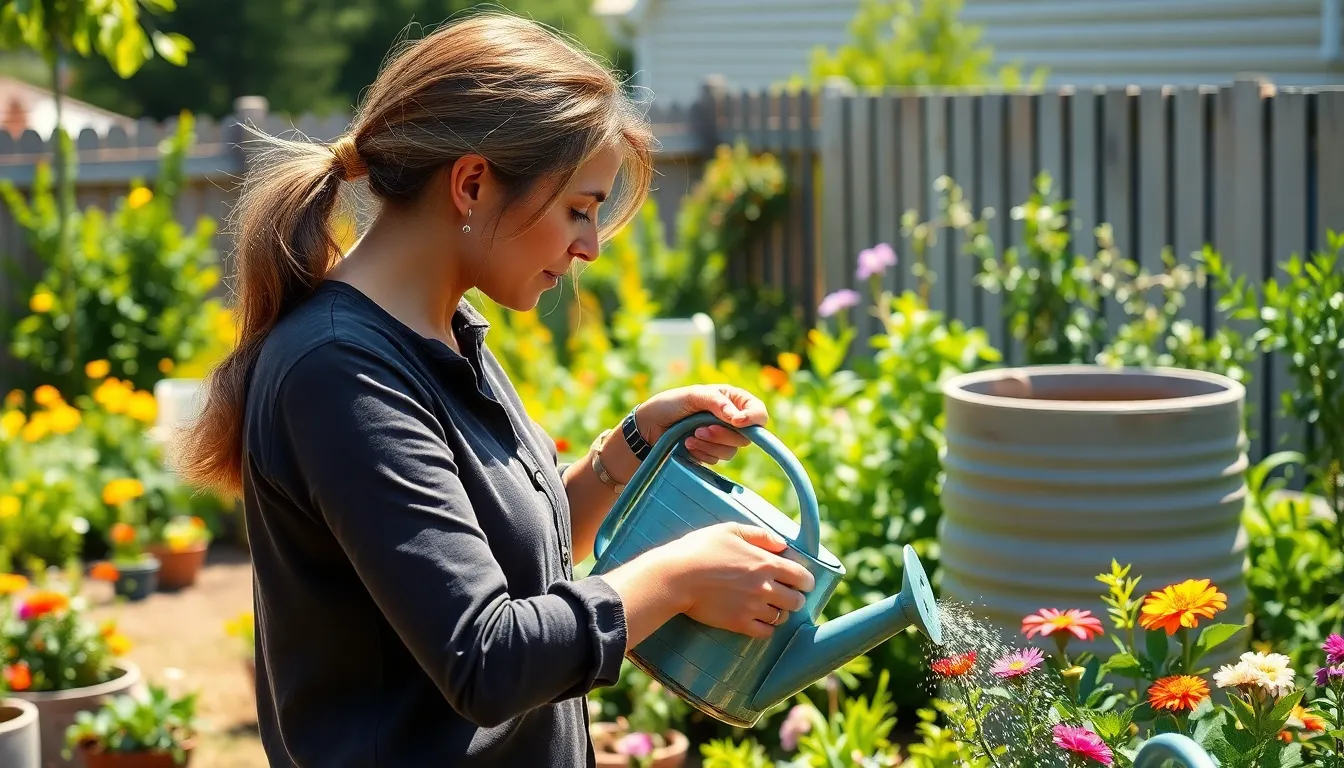Table of Contents
ToggleWater is the essence of life, but it often flows like a river in a leaky bucket. With the planet facing increasing droughts and water shortages, it’s time to become water-saving superheroes. Imagine turning off the tap while brushing your teeth and saving enough water to fill a kiddie pool. Sounds like a win-win, right?
Importance Of Saving Water
Water conservation plays a vital role in ensuring a sustainable future. With increasing droughts and water shortages globally, it becomes essential to adopt practices that reduce consumption. Decreasing water usage can help preserve ecosystems and keep rivers and lakes healthy.
Saving water directly impacts energy consumption. For instance, less hot water usage means reduced energy bills and lower greenhouse gas emissions. Small changes, like fixing leaks and using water-efficient fixtures, can lead to significant savings.
Each individual contributes to the larger picture. If every person adopts simple habits, such as only running dishwashers with full loads or taking shorter showers, the accumulated saving adds up. Studies indicate that households can save between 20 to 30 percent of their water usage with mindful practices.
Communities benefit too. Local governments can reduce the costs associated with water supply, treatment, and infrastructure by promoting conservation. With additional resources available, municipalities can invest in other critical areas, such as education and public transport.
Conserving water leads to a greater awareness of environmental issues. As people recognize their role in protecting water resources, it encourages a stronger community engagement towards ecological sustainability. Every action matters, no matter how small.
Tips On How To Save Water

Adopting simple practices can significantly reduce water consumption indoors and outdoors. Below are effective strategies for both settings.
Indoor Water Conservation
Using water-efficient fixtures, like low-flow showerheads and faucets, helps minimize water use without sacrificing performance. Fixing leaks promptly can save around 10 gallons daily. Running dishwashers only with full loads further conserves water while improving efficiency. Taking shorter showers, ideally under five minutes, can cut water usage by 25 gallons per month. Turning off the tap while brushing teeth can save up to 3 gallons per day per person. Lastly, collecting cold water while waiting for hot water can be useful for watering plants instead of wasting it.
Outdoor Water Conservation
Watering lawns early in the morning or late in the evening prevents rapid evaporation, making it more effective. Installing drip irrigation systems directs water straight to the roots, using about 30 percent less than traditional methods. Adding mulch around plants retains moisture in the soil and reduces the need for frequent watering. Choosing drought-resistant plants requires less water and provides a sustainable landscape option. Rain barrels can capture rainwater, offering a cost-effective way to irrigate gardens. Lastly, checking for leaks in hoses or irrigation systems ensures efficient water usage and prevents waste.
Technology And Innovations
Innovations in technology play a vital role in water conservation. Devices equipped with advanced features significantly contribute to reducing water waste across various applications.
Water-Saving Devices
Water-saving devices efficiently minimize water usage in households. Faucets equipped with aerators reduce flow rates without sacrificing performance. Low-flow showerheads also offer a pleasant experience while cutting water consumption by up to 60 percent. Toilets designed with dual-flush options can save about 30 percent more water than standard models. Additionally, smart meters monitor precise usage and notify users of significant changes, prompting swift action to address leaks. Employing these devices helps households save substantial amounts of water.
Smart Irrigation Systems
Smart irrigation systems optimize outdoor watering practices significantly. These systems adjust watering schedules based on weather data and soil moisture levels. By using sensors, they prevent overwatering and ensure plants receive adequate moisture. Homeowners can save up to 50 percent on water bills by implementing these systems. Some models even link to smartphone apps, allowing users to manage their watering from anywhere. Efficient watering practices foster healthier landscapes while conserving precious water resources.
Community Efforts And Initiatives
Organizations and local government play crucial roles in promoting water conservation. Community gardens often use sustainable practices to reduce overall water usage. Educational workshops inform residents about techniques like rainwater harvesting. Incentive programs encourage the installation of water-efficient appliances, making it easier for households to participate in conservation efforts.
Schools frequently engage students in projects that teach them the value of water conservation. These programs might include field trips to local water treatment facilities or hands-on activities in community gardens. Local non-profits often lead campaigns to raise awareness about the importance of reducing water waste.
Cities sometimes establish water-saving competitions among neighborhoods to inspire action. Participating neighborhoods adopt strategies such as using xeriscaping to create beautiful, low-water landscapes. By working together, communities can achieve measurable reductions in water consumption.
Government initiatives may include rebates for installing high-efficiency toilets or rain barrels. Such programs significantly lower initial costs for residents making eco-friendly updates. Community partnerships also result in workshops on maintaining efficient irrigation systems, benefiting both urban and rural areas.
Online platforms facilitate communication about water conservation efforts. Residents share tips, resources, and success stories, fostering a sense of unity. Engaging in local efforts enhances individual awareness, demonstrating that collective action leads to positive environmental impact.
Adopting water-saving practices is essential for a sustainable future. Every small action counts and can lead to significant changes in water consumption. By being mindful of daily habits and utilizing efficient technologies, individuals can contribute to a healthier environment. Community involvement enhances these efforts, fostering collaboration and awareness around water conservation. Together, these actions not only protect precious water resources but also inspire others to join the movement. Embracing these strategies today ensures a more sustainable tomorrow for everyone.










